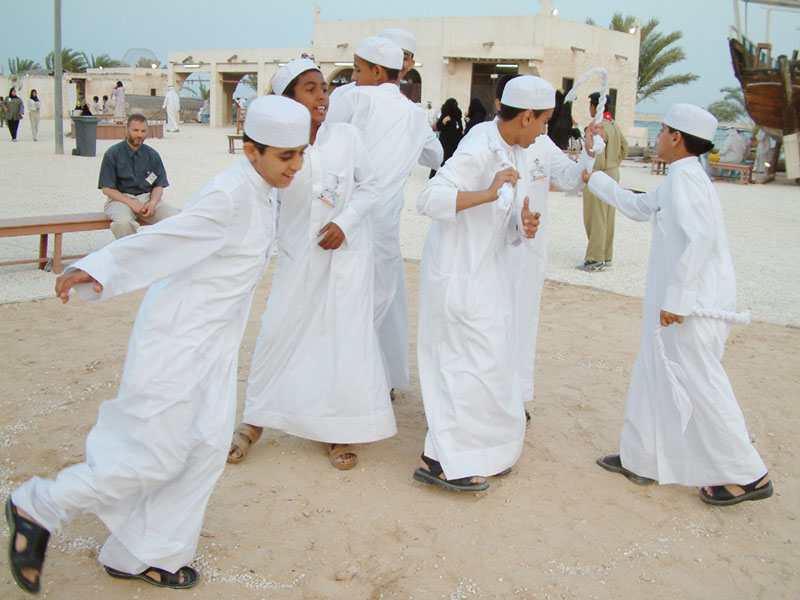Dialogue in Children's Songs
Issue 40

By Dr. Abdul Qadir Al Marzuqi
Many studies that have focused on observing a child's cognitive and perceptual development have found that children are born with a tendency to question, discover, and search for the unknown, and that they are attracted to rhythmic language.
The child's environment inspires and supports the development of his creative abilities. I see the environment as the incubator for the formation of the child’s personality and as a means of helping him integrate into society as a creative and active member when he is older.
In the beginning, the child hears cradlesongs and lullabies, which he repeats until they become part of his imaginary world. This is the beginning of the child's relationship with words with musical resonance and balanced cadences. He associates the words and music with his organic relationship with his mother's heartbeat when he sits on her lap to enjoy her songs and feels safe, secure and deeply loved.
The mother's spontaneous songs convey her society’s beliefs and values. The home environment plays an essential role in the child’s upbringing and the development of his talent. This environment also helps to develop the child’s limitless spatial memory, no matter how old he grows and how society changes.
“The relationships between psychological factors and the environment and between the cultural and the cognitive elements constitute a general cultural concept that includes knowledge, beliefs, language, ethics, customs and laws, as well as all other abilities and customs.”
The term ‘culture’ seems to be comprehensive, and it has a great impact on heritage and creativity across all civilisations.
Despite the child’s young age, imagination begins to control his awareness of the world because he starts role playing characters and addressing them with a logic that they all understand. As his imagination grows, his knowledge and experience increase.
Because of the importance of psychological, environmental and linguistic development in a child's life, I have tried to highlight developmental aspects that contribute to the function of folk songs in Arab societies in general, and in Bahraini society in particular.
In light of the above, I conclude that folk literature is one source of heritage that establishes an intellectual reference for the generations that shape civilisations.


































































